1984 to 1989
1984 – A committee made up of organizations and citizens of different backgrounds began working on the creation of an organization for young women in difficulties that are living in a homelessness situation. At that time already, the goal was to create a home to welcome them.
1986 – On August 25 1986, the Centre de secours pour jeunes prostituées de Montréal is incorporated as a charitable organization. Its mission is founded on the findings and recommendations of the Rapport sur la prostitution juvénile du CSS Ville-Marie of 1982, the Badgley Report (1984) and the Frazer Report published in 1985.
1987 – International year for housing homeless: a team of 4 people is in charge of developing the organization. At the same time starts the outreach.
1988 – A small office is used for the need of sex workers and to ensure support to young women.
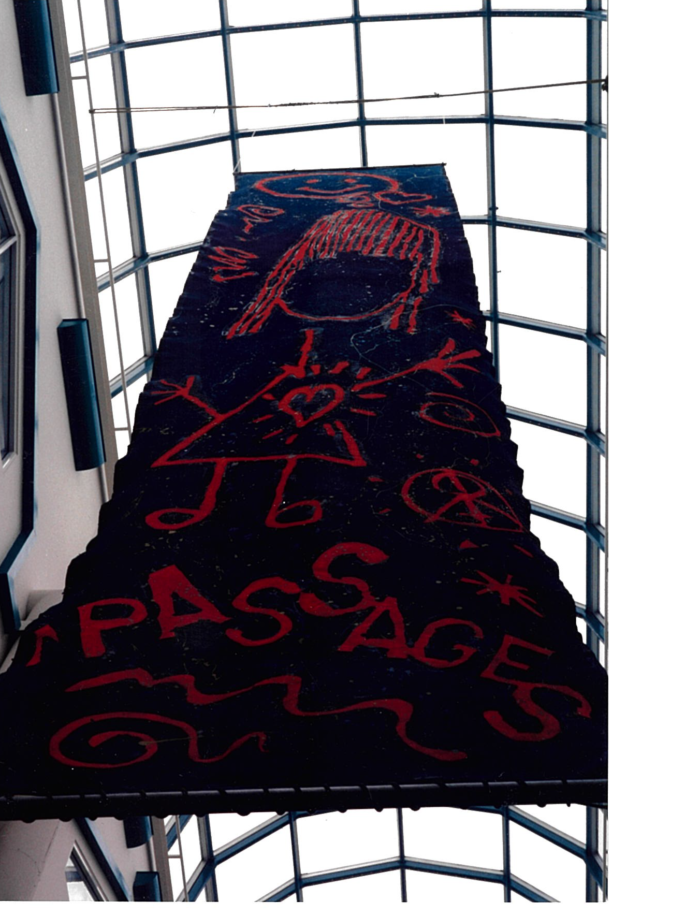
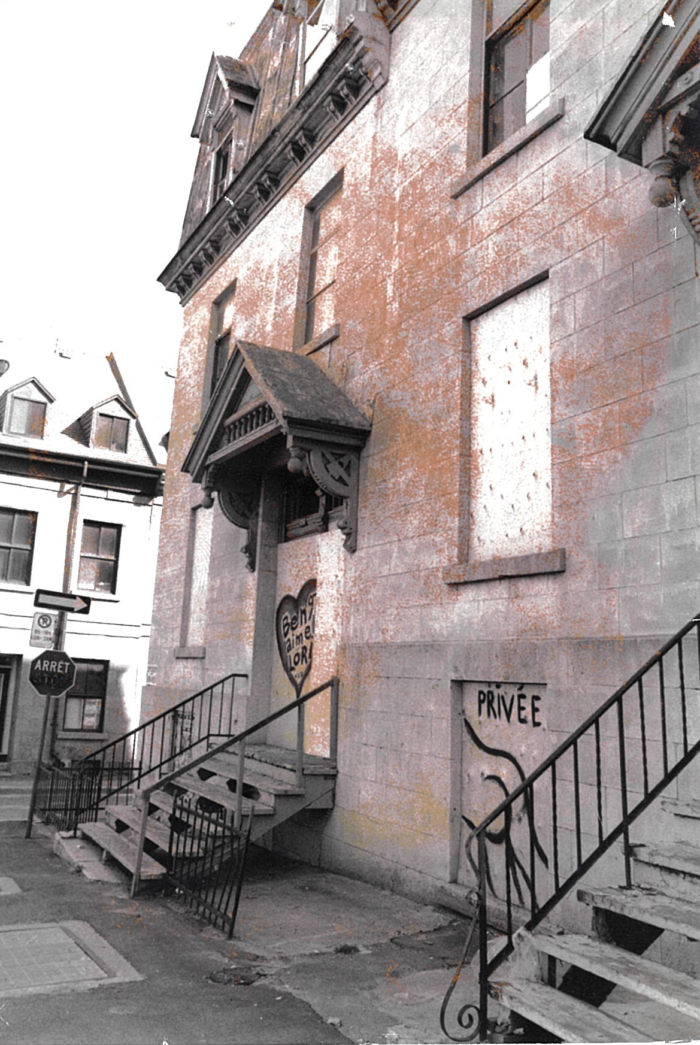
1989
Substantial donation: The City of Montreal yields the actual building for a fictitious rent of 1$/month and a 43 years old lease. The first financial campaign has the goal of rising 200 000$ to assure the basics need to operate the house.
1990
Because of Centraide’s, government grant and other foundations support, the renovation is completed and the residence is inaugurated on march 15th. The house is then defined as a 17 places long-term housing resource for young women aged between 14 to 24 years old. It’s a first in Quebec and one of a few in Canada to openly address young women who are prostitutes or at risk of prostitution.
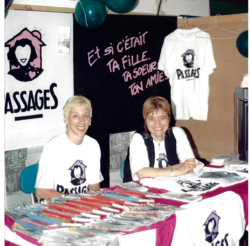

1994
The Alphonse Desjardins prize, Action de type communautaire, les marathons des Écoles Catholiques et Jacob come to support the organization because of an intern financial crisis. It is also the fifth anniversary of the house. Celebrated at Zest, Sophie Lorain become the spokesperson of the organization. Also, Passages is implicated in the filming of Anne-Claire Poirier’s movie and in the Sidérance Tour.
1997
Passages becomes owner of its building and is now offering services for young women aged between 16 to 22 years old. It is the creation of an animated video De L’autre Côté de la Rue, which is broadcasted by 7 young women.
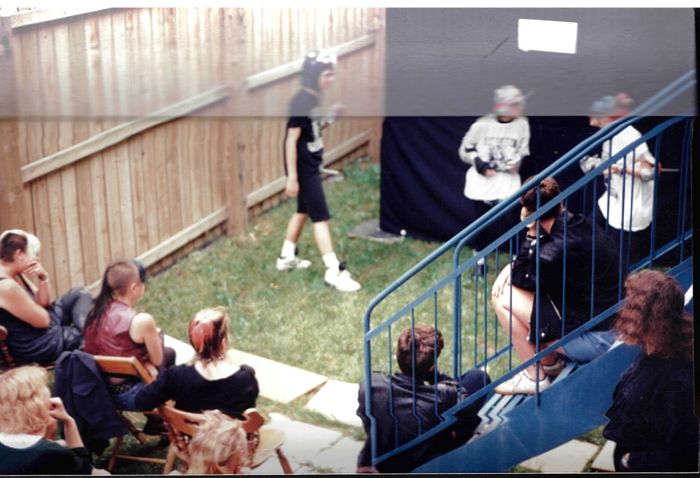
1999
L’autre côté de la rue a project created by 2 social worker is created. Art workshop are now part of Passage’s insertion project.
2000-2005
2000 – Passages changes its vocation and becomes a housing and insertion organization addressed to young women in difficulties. Also, Passages now offers 9 beds.
2001 – The organization is now open to young women aged between 18 and 30 years old. 2001 mark the end of the outreach.
2005 – The building is renovated thanks to a federal contribution. 16 places are now available, 5 for long term stay.
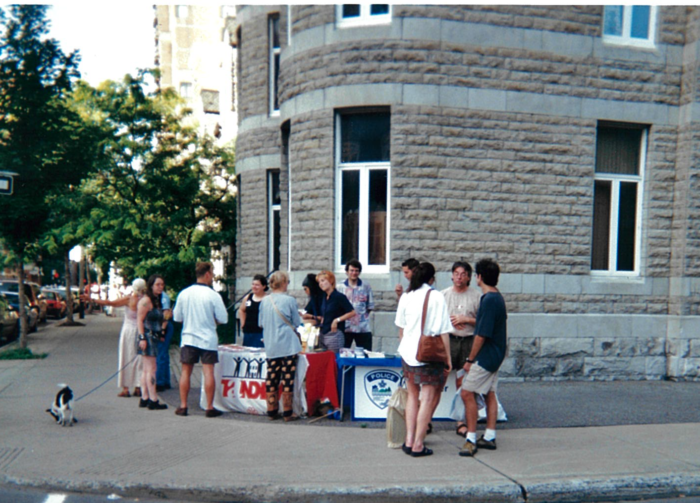
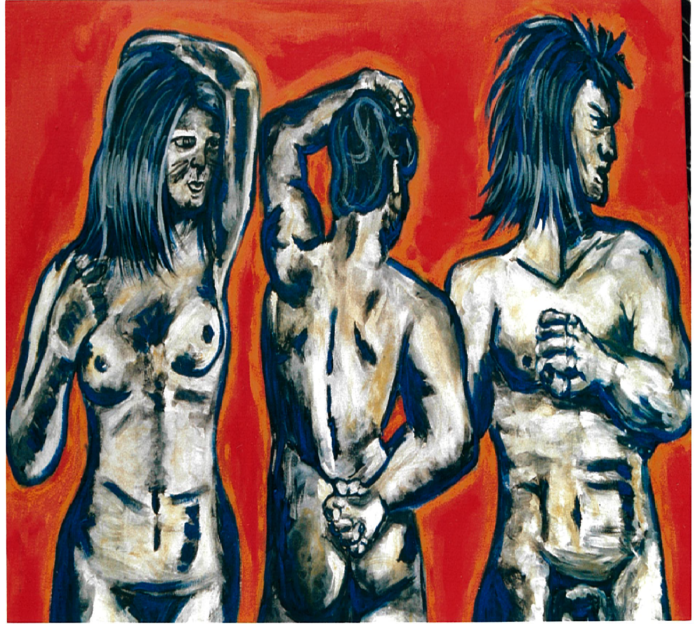

2006
Passages is 20 years old ! To celebrate, a housing project with 6 apartment with community support in Hochelaga-Maisonneuve is developed. The politic “Pour une politique en itinérance” is founded.
2008 to 2012
2008 – The Commission parlementaire sur l’itinérance take place in Montreal. Passages lodge a memoire and the Passagères the Manifeste des Passagères.
2011– Passages celebrate its 25 years of existence. The organization is now offering 14 apartments in its housing project. Writing activities are replaces with dance workshops at the women demand.
2012 – Creation and publishing of the magazine “Dans me stripes” that focus on unplanned pregnancy. This project is conveyed by a social worker and is realised by the Passagères.
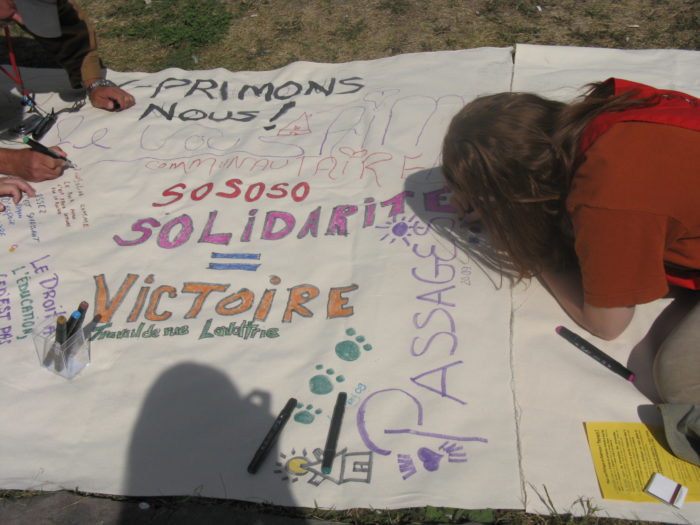
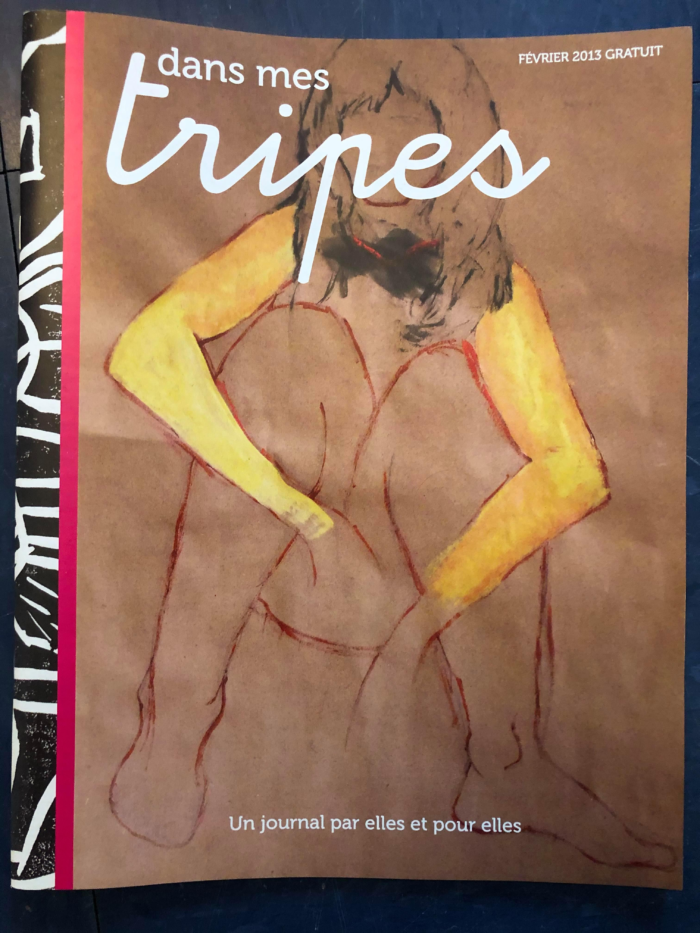
2016
Touched by our openness and non-judgment approach and convinced by the positive and concrete impact Passages has on women, Caroline Dhavernas become the spokesperson of the organization.
2017
To talk and promote the work of Passages and the realtities of women in difficulties, Caroline Dhavernas goes in a media campaign. Two publicities are created starring our spokesperson. The realisation is done by Chloé Robichaud and both videos are watchedmore than 200 000 times.
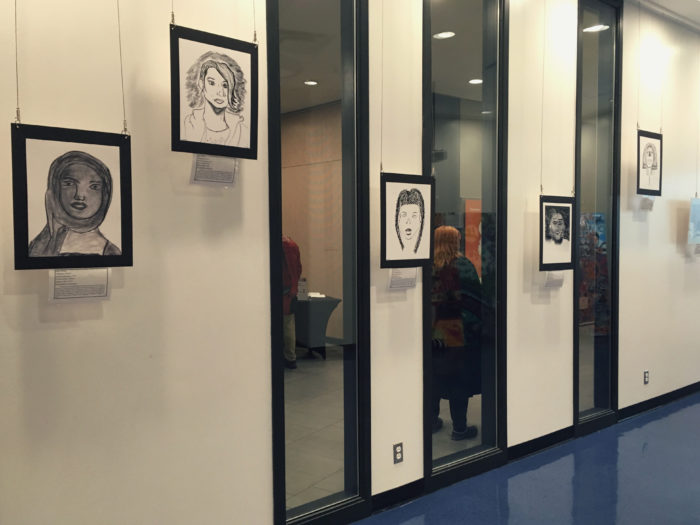


2018
Passages has a new look ! A new logo, new colors and a new slogan : “We take care of young women”.
2019
Passages is refocusing its service offer to provide more emergency accomodation. We offer short term stays that varies from a couple of hours to a full month. The insertion program now offers yoga on friday afternoons.
In the spring time, the show La caverne de fermières – un cercle de fermières avec pas de ferme is presented at St-Catherine’s theatre.
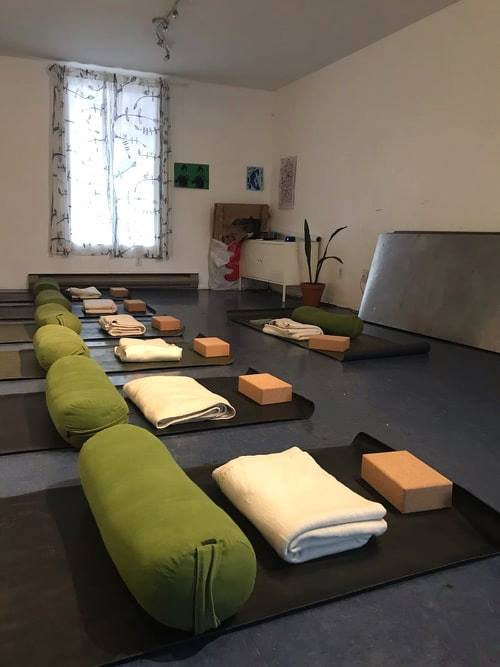
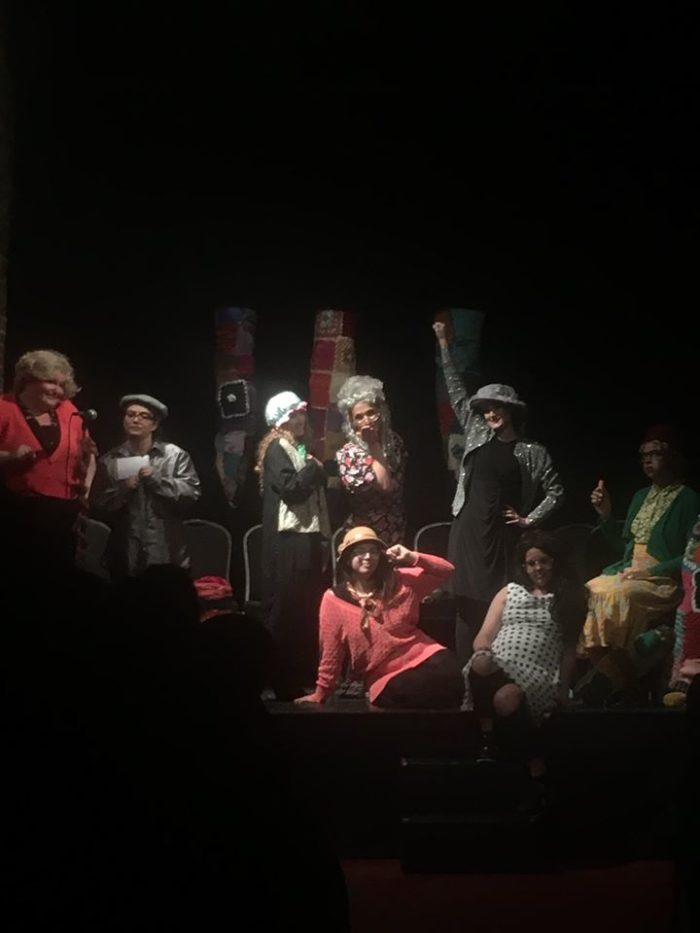
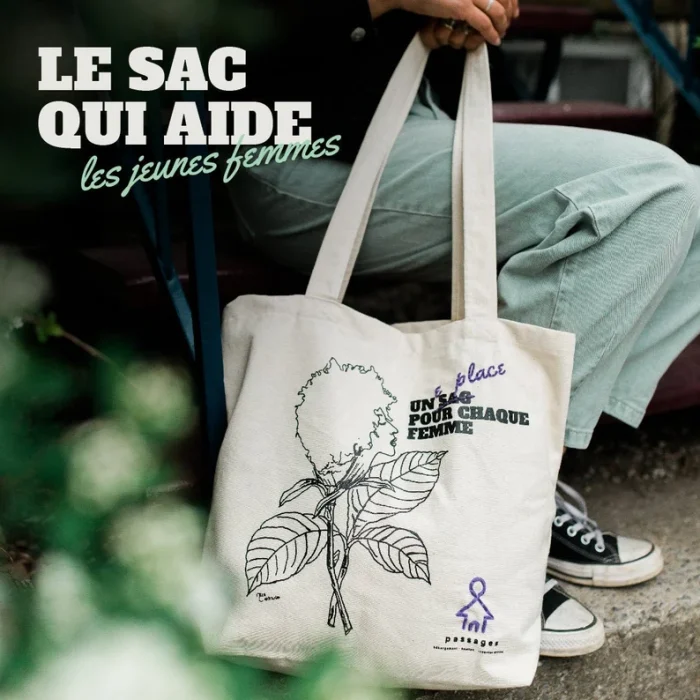
2020
It is impossible to ignore the COVID-19 pandemic that hit us in the spring of 2020. Quebec as a whole was on hiatus for weeks, but homelessness did not experience a hiatus. Our housing project and the shelter remained open and the team has had to be very creative in maintaining and adapting its services. Nevertheless, everything has been put in place so that there was no service cuts.
The shock wave created by the pandemic has reminded us of the importance of solidarity, mutual aid and empathy within our society. We wanted to insert ourselves in this speech for a greater listening of the workers on the field and on the need for more solidarity towards the vulnerable people of our society. It is in this context that the reusable bag of Passages was born. It served as a springboard for us to talk about the realities of Passages and to raise awareness of the essential work of Passages. All the money that was raised by the sale of our 150 bags (sold out in a week!) allowed us to continue to fulfill our mission: to provide a bed and a safe space for all young women in difficulty without regard or judgment on their situation.
2021
Passages celebrates its 35th anniversary! The pandemic preventing us from gathering to celebrate, a book is created so that the team, the women and the partners can discuss this 35 years of important work. Caroline Dhavernas, our spokesperson, read excerpts from the book in a video posted on our social networks for the occasion.
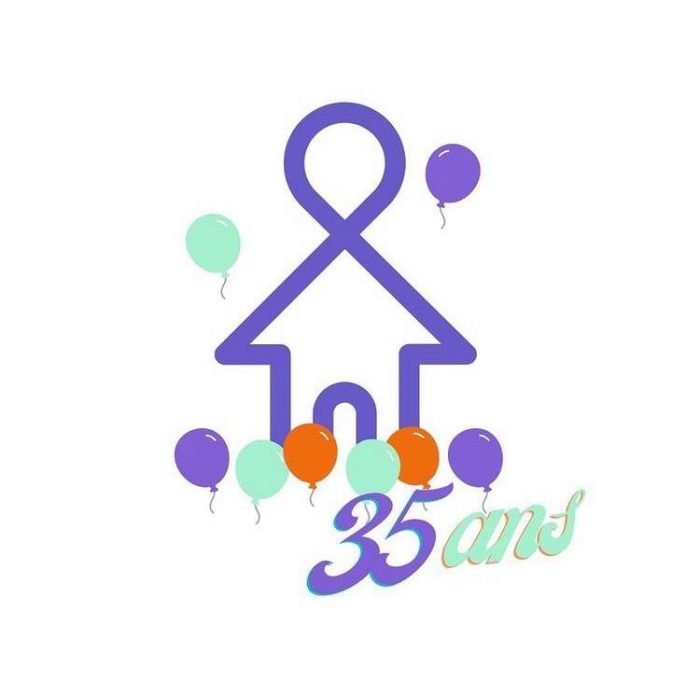
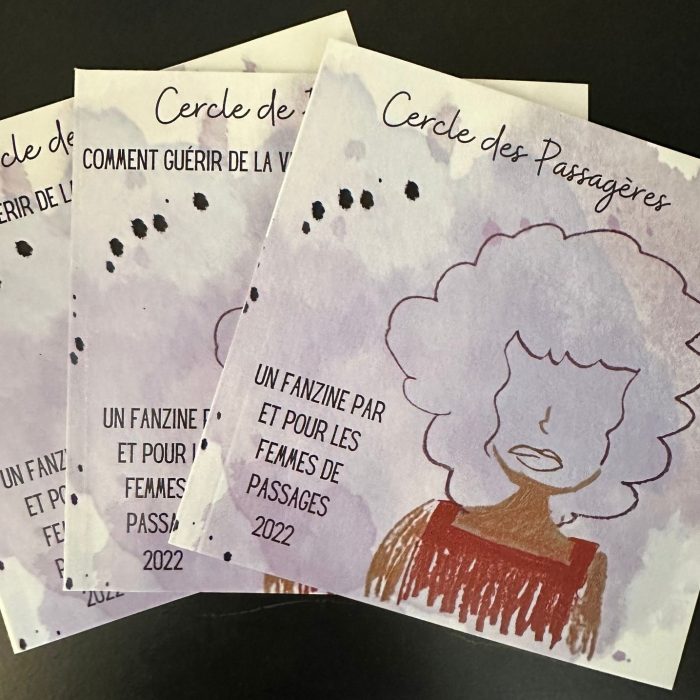
2022
Born from a real need to have a tool that addresses violence in intimate relationships adapted to young women who frequent accommodations such as Passages, the violence against women project was born in 2022. Led by an intervention worker, the Cercle des Passagères – that’s how they called themselves – worked for several months to create a BY and FOR tool. The Cercle des Passagères fanzine, created as part of the project, was distributed on social media, to partners and to the Passagères. There are more than 9,400 people who were reached by the publications related to the fanzine on our social media!
Art – Phany, inspiration : Evelyne Axell
